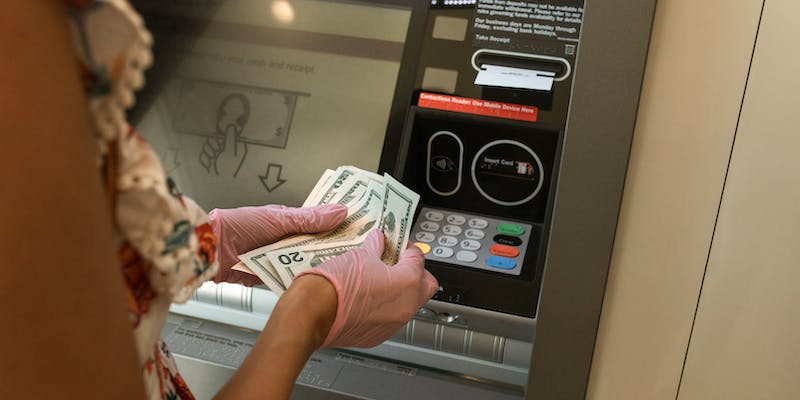After approval, you can activate credit cards online or by phone. What happens if activation is delayed or ignored? Small implications may occur in the short term, especially for cards without an annual charge. The issuer may send reminders if the card is left in a drawer. However, extended inactivity may cancel the account. While account closures may influence credit scores over time, what happens if the card is dormant is more important. We cannot avoid the temporary credit effect from the initial application, yearly fees, or using the new card and its rewards or bonuses.
When considering a fresh card application, it's important to know that there are alternatives to postponing activation or deleting the account. Consider these choices to make better-educated financial decisions that fit your needs and tastes:
Do Not Avoid the Hard Inquiry
When you activate credit cards, the issuer does a "hard pull" to check your credit. These queries may affect credit scores, depending on hard pull frequency. Since the credit check and credit line approval have already occurred, not activating the card does not protect you from the initial hard inquiry. Keeping the card inactive does not change these results.
The upside is that hard queries usually disappear from your credit report after two years. Your credit ratings may improve as this temporal trace diminishes, demonstrating its transient impact on creditworthiness. The initial harsh pull may lower credit scores, but time, proper credit management, and positive credit habits can help them recover. Understanding hard inquiries and how they affect credit scores helps people make smart credit decisions. Short-term consequences may be obvious, but long-term creditworthiness frequently improves when temporary stains on the credit record fade.
Do Not Avoid Fee

Failure to activate credit card costs money. After approval, activating a credit card verifies receipt by the legal owner, but it does not free you of fees. Annual costs, which can approach $700, apply regardless of activation. These costs matter even with idle cards. Credit card debt, including the yearly charge, must be paid on time to avoid penalties. Late penalties and penalty APRs might be applied regardless of card activation status, stressing the significance of early payment.
Even with an inactive card, you're still liable for fees. Understanding a credit card's financial ramifications beyond activation is crucial. It emphasizes the need to manage fees responsibly, pay on time, and understand that card financial obligations continue after activation. Avoiding expenditures and maintaining a healthy financial position requires proactive financial management.
Understand the Consequences of An Inactive Card
It may seem apparent, but not activating a new credit card has consequences beyond preventing use. Activation is the key to unlocking the card's many perks and functions.
The inability to use spending-related initial bonuses is a major effect. For instance, the Capital One SavorOne Cash Rewards Credit Card gives a $200 cash bonus after spending $500 in the first three months. This promotion begins on the "rewards membership enrollment date," necessitating card activation within a certain timeframe to qualify for the bonus.
Inactivity on the credit card means missing out on promotional incentives and rewards in popular spending areas. Many credit cards provide rewards schemes for eating, travel, and grocery. Not activating and using the card may prevent you from earning points that can be redeemed for cash back, travel privileges, or other benefits. Many credit cards offer 0% introductory APR periods, freeing balances from interest. Not activating the card means losing the interest-free term and perhaps incurring financing charges. The card may also offer travel, rental vehicle, and purchase protection. Not activating the card may prevent you from receiving these crucial safeguards in unexpected situations.
Important features like zero-liability fraud prevention may be missed. Cardholders can avoid fraudulent losses with credit cards' unauthorized transaction protection. This defensive feature may put you in danger without activation. Failure to activate credit card is a wasted opportunity to get advantages, incentives, and safeguards. Timely activation unlocks a range of financial benefits suited to your credit card's features and bonuses, maximizing its value.
Long-term Consequences
Inactive credit cards have long-term effects beyond fees and activation. Late payments on inactive credit cards might hurt your credit ratings. Inactive cards can hurt credit scores even without payments. Credit card companies can cancel inactive accounts. Account closures can hurt credit scores in several ways.
First, it may influence your credit history length, which affects your credit scores. Lenders favor older, carefully kept accounts. If a credit card company closes an accepted but inactive card, it might hurt your credit ratings. Second, an account closure might affect your credit usage ratio, a major credit score element. A lower credit usage ratio is better. Losing a line of credit, especially if it's quickly terminated due to inactivity, might affect this ratio.
For instance, if you have a $500 balance on your only credit card with a $1,000 limit and a 50% credit usage percentage. If you get a $2,000 credit card, your usage rate lowers to 16.7%. If the issuer closes the newly issued card for non-activation, your credit usage percentage may rise again. This sudden shift may affect your credit ratings and creditworthiness. Inactive credit cards can affect your credit history, utilization percentage, and fees. To maintain a good credit score, you must monitor all credit accounts, even little ones.
Alternatives to Keeping an Inactive Card

A product adjustment may help you overcome buyer's remorse with a new credit card. Contact your credit card issuer to replace a product; the number is usually on the back. This inquiry lets you ask about switching to a new card from the same issuer that better suits your requirements and finances.
Consider requesting a card with better rewards, lower annual fees, or lifestyle-specific benefits. It strategically optimizes credit card advantages and features to meet your financial goals.
Activating your card may be required before discussing a product modification. Activation is simple and before discussion with the issuer regarding changes.
Requesting a product modification is worth attempting, but results are not guaranteed. Credit card activation issuers may accommodate such requests based on your credit history and card options. Proactively investigating product changes empowers you to maximize your credit card and fit it with your changing financial objectives and preferences.

Find Out: What Is the Average Health Insurance Premium?

How the 5 Cs of Credit Impact Your Loan Approval

Getting a Bank Account as an Undocumented Immigrant: What You Need to Know

Deciphering Credit Cards: A Step-by-Step Guide

5 Best Cash-Out Refinance Lenders That You Should Know About

Cracking the Code of the Discount Rate: Its Influence on the Fed and Cash Flow Analysis

Wells Fargo's Cell Phone Insurance

How an Auto Loan Grace Period Can Save You From Late Fees?

ATM Operations Demystified: Understanding Its Functionality

Understanding Administrative Expenses: A Comprehensive Guide

What Brands Are Owned by Pepsi
